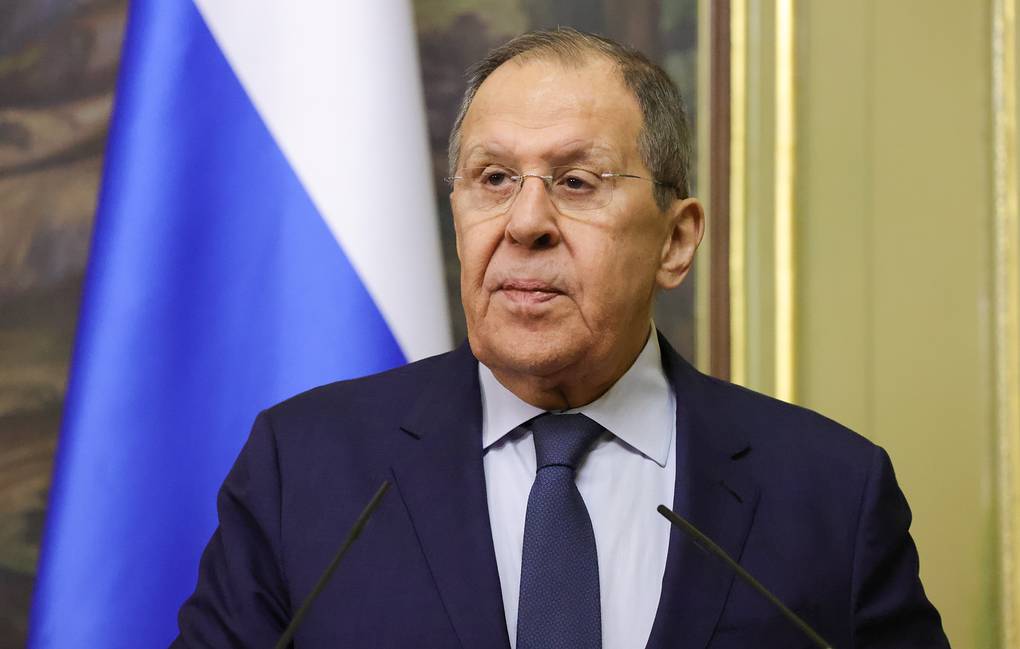WNAM REPORT: Russian Foreign Minister Sergey Lavrov will meet with Uzbek government officials to discuss bilateral relations, Eurasian integration and preparations for the upcoming 80th anniversary of victory over Nazi Germany.
The top Russian diplomat arrived in Samarkand on Tuesday evening.
The Russian Foreign Ministry’s official spokeswoman, Maria Zakharova, said Lavrov is expected to meet with Uzbek President Shavkat Mirziyoyev and hold substantive talks with Uzbek Foreign Minister Bakhtiyor Saidov.
According to the diplomat, the negotiations will mainly focus on preparations for the celebration of the 80th anniversary of Victory in the Great Patriotic War, as well as further development of comprehensive bilateral strategic partnership and alliance through intensified implementation of agreements following Russian President Vladimir Putin’s state visit to Uzbekistan in May 2024.
“The sides will discuss current international issues of mutual interest, regional security matters, cooperation within the CIS, SCO and Central Asia-Russia frameworks, taking into account the closeness or similarity between Moscow and Tashkent’s approaches,” the spokeswoman noted, “the agenda will also include matters of Eurasian integration processes with Uzbekistan’s observer status in the EAEU in mind.”
Participation in memorial events
During his meetings with leaders of the Commonwealth of Independent States (CIS) last December, Russian President Vladimir Putin invited them to attend the Victory Day celebrations in Moscow.
The president of Uzbekistan, just like the majority of other leaders, has already confirmed participation in memorial events in Moscow on May 9.
Also, military units from 19 friendly nations were invited to participate in the Red Square Parade. The list of these countries has not yet been published, but Uzbek troops marched in the Red Square five years ago, during the 75th anniversary of Victory in the Great Patriotic War.
Uzbekistan traditionally holds numerous Victory Day celebrations and campaigns, including St. George’s Ribbon.
Areas of cooperation
Prior to the talks, the Russian Foreign Ministry emphasized that Moscow and Tashkent have “constructive, respectful and mutually beneficial ties, based on the principles of friendship, sovereign equality and respect to each other’s interests.”
The sides actively cooperate in trade, energy sphere, science and humanitarian affairs.
“Despite geopolitical turbulence, the introduction of illegitimate restrictive measures by Western countries, their threats against our friends, bilateral trade and economic ties are developing actively. Last year’s trade turnover exceeded $10 billion,” the ministry said.
Special attention will be paid to the issue of labor migrants, as around 1.1 million Uzbek citizens are employed in various spheres in Russia.
Moscow and Tashkent cooperate actively within the UN, discussing regional and global issues. An important subject for the two nations is the situation in Afghanistan, and the sides have similar approaches to Afghan settlement.
Other regional and global issues are also expected to be touched upon during Lavrov’s meetings with Uzbek officials in Samarkand.
Deeper integration
Another issue that is expected to be raised will be Eurasian integration, given Uzbekistan’s observer status at the Eurasian Economic Union (EAEU).
Previously, the country’s government expressed its interest in removing trade barriers with the EAEU. For example, Uzbek Prime Minister Abdulla Aripov has spoken in favor of drafting agreements to mutually remove tariffs and other trade restrictions. He also suggested simplified customs transit. It is possible that these issues will be raised during Lavrov’s talks with the Uzbek side.
Apart from the EAEU, Moscow and Tashkent work jointly within various integration bodies, such as the Commonwealth of Independent States (CIS), the Shanghai Cooperation Organization (SCO) and in the Russia-Central Asia format. During Lavrov’s visit, the sides are expected to discuss cooperation within these formats. They are also expected to address international issues and regional security.


